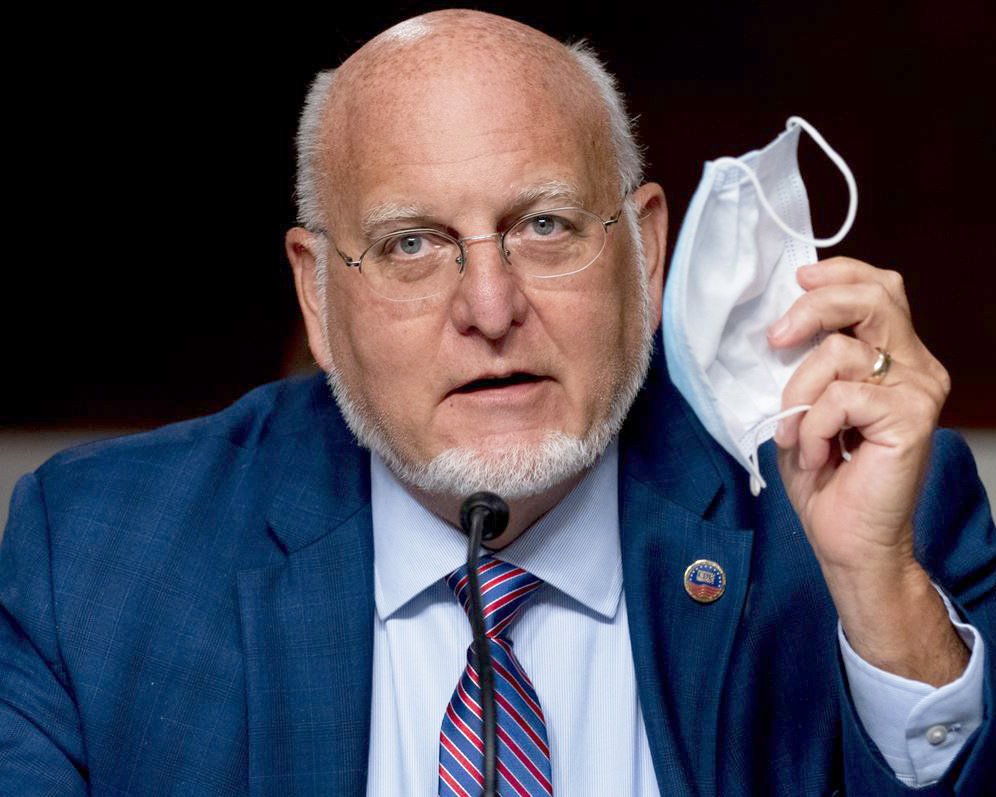
Mike Pence on Leadership and the Future of the Republican Party
Former US Vice President Mike Pence looks back on the events of January 6 2021, his final days in office with President Trump and his…
Thought Leader: Mike Pence

A looming “great pandemic” could be 50 times more deadly than coronavirus, top scientists warned today.
Latest figures show 223,906 people in the UK who died had Covid-19 on their death certificates.
Millions more were infected, leaving hundreds of thousands thought to be suffering from Long Covid.
But experts fear another pandemic could infect and kill even more.
American virologist Dr Robert Redfield, who served as director of the Centers for Disease Control and Prevention from 2018 to 2021, feared his grandchildren would be faced with an even bigger crisis.
He told the BBC : “I think they are at high risk for a great pandemic in the next decade or two and I think that pandemic is going to be caused by man not nature – either intentional bioterrorism or possibly just a lab accident.”
Oxford University’s Regius Professor of Medicine, Professor Sir John Bell, said the Covid-19 pandemic “could have been a lot worse”.
“What are we going to do about detecting and managing the next pandemic, because that’s where trouble comes from?,” he said.“I don’t want to dismiss this last pandemic – a lot of people suffered a lot, there were lots of lives lost and it was a great tragedy … it could have been a lot worse.”
He said that if the Omicron variant had hit before the original Wuhan strain – which gave those it infected and who survived some immunity, and allowed vaccines to be developed – it would have claimed many more victims.
Modelling suggested that “if the first virus that appeared in Wuhan had not been the Wuhan strain but had been the Omicron strain – which we all know is much, much more infectious – and that had hit an immunologically naive population – in other words a population that had never seen the virus before – the peak mortality in the UK would be about five times what it was with the original Wuhan strain,” he said.
“Those were pretty dark days in April and May 2020 and I don’t think we would have wanted five times the number of people dying.
“Had it been avian flu it would have been 50 times, so I think when we hear there’s a great pandemic coming – if either one of those things were to happen it would be a great deal worse than what we saw.”
Sir John warned the next pandemic could come either from zoonotic transmission – where it is passed from animals to humans – or an accidental lab leak.
He pointed to the 2002-04 outbreak of severe adult respiratory syndrome which was first identified in China and killed 774 people worldwide.
“We know historically that we do get pathogens that come from the animal kingdom that get into man that cause these sorts of outbreaks – the previous Sars outbreak is one but also occasional avian flu cases have come from animals,” he said.
“We know that happens. We also know that labs that look after these very pathogenic viruses do leak.”
He even raised fears of terrorists trying to steal viruses and use them as biological weapons.
Sir John said: “Don’ forget that most terrorist organisations around the world have seen the havoc that can be provoked by these kinds of pathogens, so the concept that this is a biosecurity issue more widely shouldn’t be a new one, it should be something that we are thinking about all the time.”
Mike Pence on Leadership and the Future of the Republican Party
Former US Vice President Mike Pence looks back on the events of January 6 2021, his final days in office with President Trump and his…
Thought Leader: Mike Pence
Marc Short on U.S. Investment in Critical Minerals
Why do critical minerals matter now? Marc Short explains how U.S. investment in critical minerals fits into a broader strategy around economic security, manufacturing, and…
Thought Leader: Marc Short
Marc Short on AI Policy and the Government’s Role in Chip Technology Investment
On CNBC, Marc Short breaks down the role of AI policy and how government investment is shaping the future of chip technology. A former Chief…
Thought Leader: Marc Short

